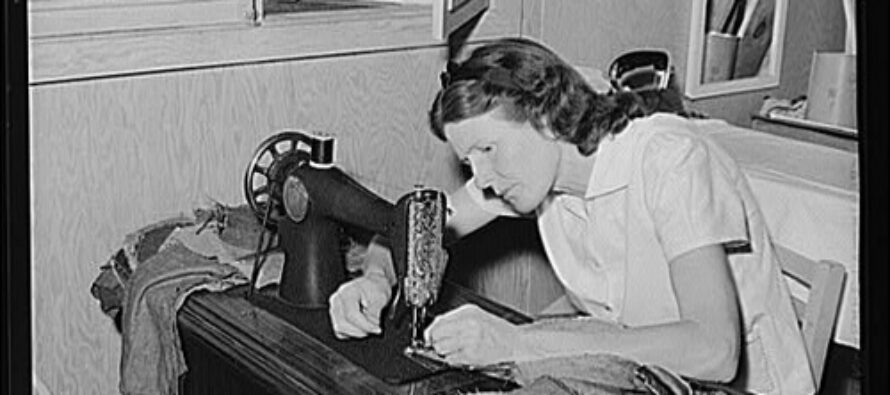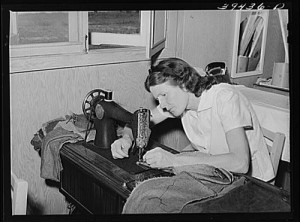5 Uncommon Skills That Will Be Useful After the SHTF

I believe that community will be important in a post-SHTF society.
It is also my belief that each member of a community will need to contribute in one way or another to the group as a whole. It is easy to think of those contributions as something physical that you can touch and feel such as food, medical supplies, fuel, firearms, ammunition and cash. The problem, of course, is that depending on economic circumstances and logistics, even experienced preppers may have very little extra in the way of tangible assets to contribute to the community as a whole.
Today I would like to move beyond the need for Prepper’s to have physical and monetary assets . Instead, I would like to suggest five uncommon skills that will be needed by every post-SHTF community. These are skills that do not take a lot of money to learn and yet they will be extremely valuable and in high demand if the SHTF. These are skills you may not have thought about, but important skills none-the less.
Five Useful Skills You May Not Have Thought Of That Will Be Useful Post SHTF
1. Sewing
Anyone who was a child during the Great Depression will know that new clothes were a luxury afforded by very few. Clothes were worn until they were literally thread bare and even then, they were patched and mended, usually by hand. In those days, one of the very first domestic skills learned by a young child was how to sew on a button. After that, they were taught ironing, hemming, and darning. Common opinion was that darned socks were lumpy, but they were better than no socks at all and lumpy or not, they kept your feet warm.
These domestic skills were not limited to just the girls. As the Survival Husband will attest, little boys were also taught to sew, iron, hem and darn.
In a world where new clothes and even bolts of fabric are precious, if available at all, sewing skills will be needed to create new garments out of old. Such things as sanitary pads for the ladies will need to be fashioned out of discarded pieces of cloth and even washable TP from old rags may be needed. But most of all, clothes will need to be repurposed and made usable again. And for that, someone with sewing skills will be invaluable to the community.
2. Barbering and Hair Cutting
How often do you get your hair cut? Once a month? Every two months? When there is no salon around the corner or worse, no money for a salon, the next best thing is a good set of shears and someone with a modicum of hair cutting knowledge.
At the risk of sounding frivolous, no matter how bad things get, I know that I am going to feel better if I am well groomed and look nice. I am not talking about a fancy hairdo and salon highlights (which, by the way, I do not have). I am talking about a nicely trimmed hairstyle, nothing fancy, that keeps hair out of my eyes and is short enough to wash and keep clean using only a modest amount of water. The same applies to men although for many, a shaved head will be a viable option.
To get started in home barbering and haircutting, you need some barber shears and a trimmer. I happen to use a Wahl Peanut that also does double duty for dog grooming. A portable trimmer will run off of solar power so the lack of electricity should not be a problem although there are plenty of battery operated models to choose from as well.
The other thing you need are some warm bodies that will let you practice on them. Note that I am not suggesting that you set up shop; States have strict licensing requirements when it comes to cutting hair and barbering. What I am suggesting, however, is that you acquire some basic skills practicing on family and friends so that when the time comes, you can perform basic hair cutting for other members of your survival community.
3. Cooking and Baking for a Crowd
When the pioneers traveled across the country in their wagon trains, certain individuals were designated “Cookies”. These individuals were responsible for cobbling together family style meals from whatever provisions happened to be available.
Cooks, or “Cookies” will also be sought after in a post SHTF community. The reason for this may be not be obvious but in truth, there will be so many chores to do that for the sake of efficiency, it will be useful to have a central kitchen, where communal meals are prepared, perhaps even outdoors over an open fire.
People need to eat and anyone who has the skill to cook and especially to bake for a crowd will find a welcome place in the survival community.
4. Teaching
Young people are going to need to learn the basics of reading, writing, and science. As I wrote in Education After the Collapse – A Journey Back to Little House on the Prairie, the schoolhouse of old was likely the kitchen table, with Mom and Dad pitching in to teach their children the basics.
In a post SHTF society, there will not be traditional schools to educate children. Instead, children and their parents will be on their own unless someone is willing to step up and teach them not only the basics, but also how to solve problems and how to think critically when solving problems.
What will it take to teach? Some textbooks, paper, writing materials and flash cards will be good to have but even more important, is a willingness to share knowledge and to exhibit patience when dealing with children who have been displaced or may be confused by the scary world changes taking place around them.
5. Entertaining
This last skill is something I have rarely, if ever, seen mentioned in prepping circles. In a world where there are no movies, no TV, no video games and no mall, staying pleasantly occupied during leisure periods will be a challenge. The risk, if there is no entertainment, is that you will either work yourself to death because you are bored or you will become depressed due to the lack of imaginative stimulation.
Entertaining in a post SHTF world may include singing or playing the harmonica, guitar or accordion. It might also include teaching a group to dance, play charades or even to play a rousing round of canasta. Knowing how to entertain others and bring a bit of fun into their lives is a special trait that can be honed now and put into use over and over again, regardless of how bad things get.
The Final Word
Let’s face it. In a post-SHTF society, there are going to be the haves and the have-not’s. As a matter of fact, one of the fears that many of us have is that someone will come knocking on the door empty-handed and will ask or even demand to join your community of preppers. This could be a family member or neighbor or even a stranger who has done little if anything to prepare in spite of the many warning signs.
Although you may have some charitable handouts at the ready, inviting someone to be accepted into your home or community is going to require some tough scrutiny. Part of that scrutiny will be to evaluate whether they have a useful and needed skill to bring into the mix. And by useful skill, I mean a skill that will enhance the lives and lessen the burden of the others that are already there. The five skills I have outlined today are the types of skills that will be sought after in such a situation.
My recommendation is that even if you do not think you will need them, it is a good idea to become proficient at one or more of these skills now. After all, if you need to bug out with simply your bug-out-bag and the clothes on your back, you may be the one knocking on a stranger’s door with nothing but your skills to offer.
This article was originally published by Gaye Levy at BackdoorSurvival.com
Visit: EZ Battery Reconditioning To Learn More here: http://www.survivalistdaily.com/ezbatteryreconditioning








An important one you should be aware of, blacksmithing. Anyone capable of making good metal work WITHOUT the need for much if any electricity, basically. Before industrialization, black smiths were one of the MOST important members of every community.
At the top of this list has to be health care. Honestly! Nurses, doctors, nurse practitioners. These folks with life saving skills and knowledge of how to use medical equipment will be invaluable.
Pretty decent little list. I’ve always wanted to learn the dulcimer…